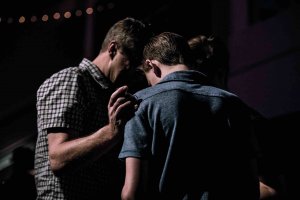Supreme Court Declines to Hear Football Prayer Case
February 13th, 2019

The Supreme Court recently declined to hear an appeal by a football coach who was let go by his school district because he prayed on the field at games.
The United States Supreme Court recently declined to hear an appeal by a high school football coach who was dismissed by his school district because the man prayed on the field immediately following football games. This decision occurred despite commentary by four of the Supreme Court justices that they were troubled by the coach’s dismissal by the school as well as how the case was handled by two lower courts.
How the Case Reached the Supreme Court
The action was initiated by Joseph Kennedy, who was employed as a coach at Bremerton High School in the state of Washington. Kennedy argues that it was within his First Amendment rights to express his faith while on the job. In the fall of 2015, while he was employed as an assistant varsity football coach and the head coach of the school’s junior varsity team, Kennedy became involved in the case because Kennedy’s Christian faith requires him to give thanks at the end of football games for the accomplishments of players. During his prayer sessions, Kennedy was sometimes joined by other players on the school’s football team.
In 2015, school districts informed Kennedy that he could continue to give inspirational talks but was prohibited from encouraging students to engage in prayer. After complying for several weeks, Kennedy then pursued an accommodation from the school board so he could continue his prayers. After praying at two more games, the school district placed Kennedy on administrative leave. Kennedy then did not seek the renewal of his year-to-year contract for the following season.
Instead, in 2016, Kennedy initiated legal action against the school district pursuing reinstatement as a coach. The following year, the 9th Circuit Court of Appeals ruled against the coach and held that Kennedy was speaking as a public employee and not as a private citizen when he conducted the prayer sessions.
The Basis of the Supreme Court Appeal
As part of his appeal to the United States Supreme Court, Kennedy claimed that his case raises the fundamental question of whether the court’s 1969 decision still applies to teachers. In this case, the Supreme Court found that students had the right to exercise their freedom of speech and expression provided that the school was not substantially disrupted. As a result of this previous case, Kennedy argues that the 9th Circuit’s sweeping ruling against the communication does not meet with previous findings by the Supreme Court.
The school district that placed Kennedy on leave also argued that the justices should not take the case because in his position as a coach, Kennedy was speaking and acting as a school official rather than as a private citizen.
The Universal Life Church
While many of the laws concerning the separation between church and state in this country originate from the Constitution, which was written hundreds of years ago, there are still debates each year concerning exactly how these laws should be applied. The Universal Life Church’s blog focuses on the most recent issues regarding religious practice in schools. By reading our blog each month, readers can remain up to date with these issues.
(image courtesy of Jack Sharp)


